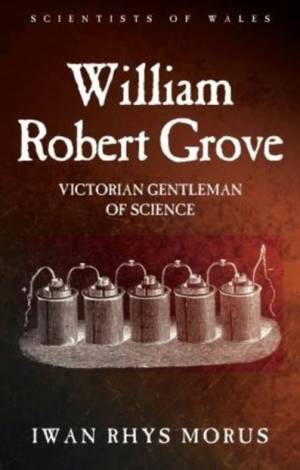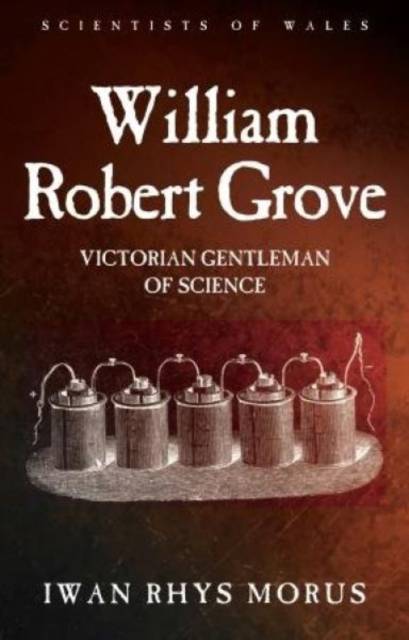
- Afhalen na 1 uur in een winkel met voorraad
- Gratis thuislevering in België vanaf € 30
- Ruim aanbod met 7 miljoen producten
- Afhalen na 1 uur in een winkel met voorraad
- Gratis thuislevering in België vanaf € 30
- Ruim aanbod met 7 miljoen producten
Zoeken
Omschrijving
William Robert Grove (1811-1896) was a giant of science in the nineteenth century, but he's largely been forgotten today. A pioneer in the harnessing of electrical energy, he invented an early battery known as the Grove Voltaic Cell, developed one of the first incandescent lights, and created the first fuel cell, using an approach that is still the basis of fuel cell technology today. Along the way, he also published a landmark essay, "The Correlation of Physical Forces," and led the mid-century reform of the Royal Society. This book tracks Grove's scientific career and places it within the context of the larger Victorian scientific and intellectual world, establishing anew his crucial place in the history of science, while also showing how he helped to forge a distinct Welsh identity within the scientific community of the period.
Specificaties
Betrokkenen
- Auteur(s):
- Uitgeverij:
Inhoud
- Aantal bladzijden:
- 192
- Taal:
- Engels
- Reeks:
Eigenschappen
- Productcode (EAN):
- 9781786830203
- Verschijningsdatum:
- 15/03/2017
- Uitvoering:
- Hardcover
- Formaat:
- Genaaid
- Afmetingen:
- 140 mm x 218 mm
- Gewicht:
- 612 g

Alleen bij Standaard Boekhandel
+ 168 punten op je klantenkaart van Standaard Boekhandel
Beoordelingen
We publiceren alleen reviews die voldoen aan de voorwaarden voor reviews. Bekijk onze voorwaarden voor reviews.











